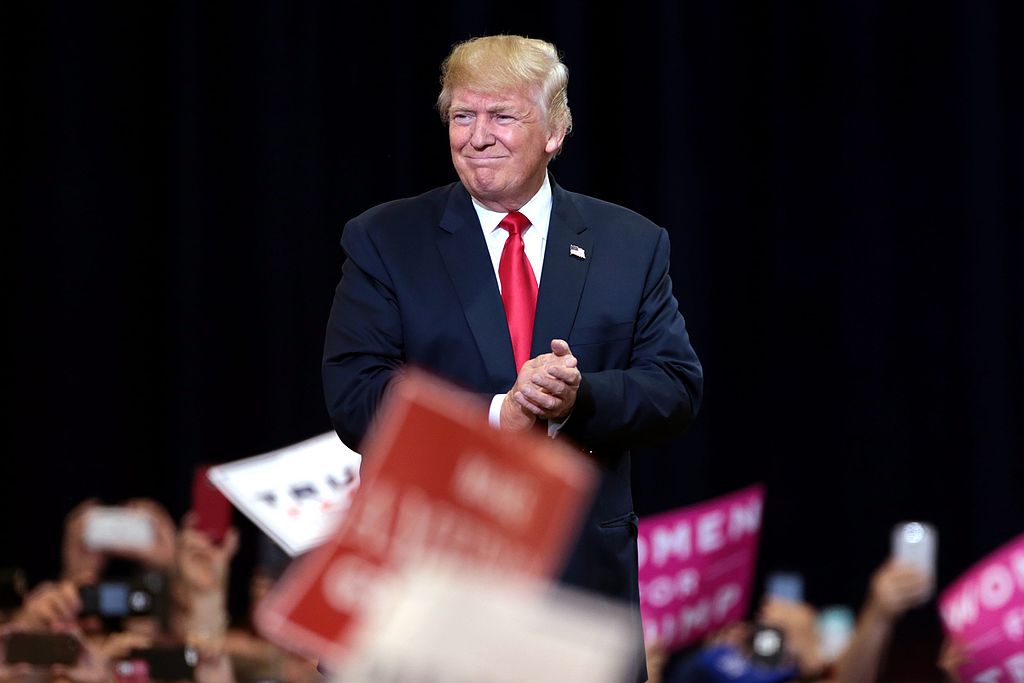As President Donald Trump prepares to begin his second term in January 2025, his administration is outlining a comprehensive approach to gun control, emphasizing the protection of Second Amendment rights while addressing national security concerns.
Advocacy for Armed School Personnel
A central component of Trump's gun policy is the proposal to station armed guards in schools nationwide. This initiative aims to enhance student safety and deter potential threats. Critics argue that introducing firearms into educational environments may escalate violence and create a climate of fear among students and staff.
Reversal of Previous Gun Control Measures
The administration plans to dismantle gun control regulations implemented during the Biden-Harris era, including the Bipartisan Safer Communities Act, which was the most significant gun violence prevention legislation in nearly 30 years. This act aimed to keep firearms out of the hands of individuals under 21 who are prohibited from purchasing them and empowered the Justice Department to prosecute firearms traffickers. The proposed rollback has sparked concerns about potential increases in gun violence and the undermining of recent progress in gun safety.
National Concealed Carry Reciprocity
Trump's policy includes advocating for national concealed carry reciprocity, allowing individuals with concealed carry permits in one state to have their permits recognized across state lines. Supporters argue that this measure upholds constitutional rights and simplifies regulations for gun owners. Opponents warn that it could lead to inconsistencies in state laws and complicate law enforcement efforts.
Public Reaction
The proposed gun policies have elicited a range of responses:
-
@SafetyAdvocate: "Arming schools is not the solution. We need comprehensive gun reform to protect our children."
-
@SecondAmendmentSupporter: "Finally, a president who respects our rights. National reciprocity is a win for law-abiding citizens."
-
@EducatorVoice: "Introducing guns into schools is a dangerous precedent. Our focus should be on education, not militarization."
Conclusion
President Trump's 2025 gun control strategy underscores a commitment to preserving Second Amendment rights while proposing measures aimed at enhancing public safety. The administration's approach has ignited a national debate, reflecting the complex and deeply rooted perspectives on gun control in the United States. As these policies are implemented, their impact on society and public safety will be closely scrutinized.



 Israel Prepares Weeks-Long Military Campaign Against Iran Amid Escalating Air Strikes
Israel Prepares Weeks-Long Military Campaign Against Iran Amid Escalating Air Strikes  Israel Launches Fresh Strikes on Iran After Death of Supreme Leader Ayatollah Khamenei
Israel Launches Fresh Strikes on Iran After Death of Supreme Leader Ayatollah Khamenei  U.S.-Israel War on Iran Escalates as Gulf Conflict Disrupts Oil, Air Travel and Regional Security
U.S.-Israel War on Iran Escalates as Gulf Conflict Disrupts Oil, Air Travel and Regional Security  Trump to Attend White House Correspondents’ Dinner 2026, Ending Long Boycott
Trump to Attend White House Correspondents’ Dinner 2026, Ending Long Boycott  Australia Rules Out Military Involvement in Iran Conflict as Middle East Tensions Escalate
Australia Rules Out Military Involvement in Iran Conflict as Middle East Tensions Escalate  Trump’s Iran Strikes Spark War Powers Clash in Congress
Trump’s Iran Strikes Spark War Powers Clash in Congress  Trump and Merz Meet at White House Amid Iran Strikes and Trade Tensions
Trump and Merz Meet at White House Amid Iran Strikes and Trade Tensions  Iran Detains U.S. Citizens Amid Escalating Conflict With the United States and Israel
Iran Detains U.S. Citizens Amid Escalating Conflict With the United States and Israel  Supreme Court Backs GOP Lawmaker in New York Redistricting Fight Ahead of Midterms
Supreme Court Backs GOP Lawmaker in New York Redistricting Fight Ahead of Midterms  Marco Rubio to Brief Congress After U.S.-Israeli Strikes on Iran
Marco Rubio to Brief Congress After U.S.-Israeli Strikes on Iran  U.S. Deploys Tomahawks, B-2 Bombers, F-35 Jets and AI Tools in Operation Epic Fury Against Iran
U.S. Deploys Tomahawks, B-2 Bombers, F-35 Jets and AI Tools in Operation Epic Fury Against Iran  Trump Announces U.S. Strikes on Iran Navy as Conflict Escalates
Trump Announces U.S. Strikes on Iran Navy as Conflict Escalates  Pentagon Downplays ‘Endless War’ Fears After U.S. Strikes on Iran Escalate Conflict
Pentagon Downplays ‘Endless War’ Fears After U.S. Strikes on Iran Escalate Conflict  Trump Says U.S.-UK Relationship Has Deteriorated After Starmer Hesitates on Iran Strikes
Trump Says U.S.-UK Relationship Has Deteriorated After Starmer Hesitates on Iran Strikes  Argentina Tax Reform 2026: President Javier Milei Pushes Lower Taxes and Structural Changes
Argentina Tax Reform 2026: President Javier Milei Pushes Lower Taxes and Structural Changes  Trump Says U.S. Combat Operations in Iran Will Continue Until Objectives Are Met
Trump Says U.S. Combat Operations in Iran Will Continue Until Objectives Are Met  EU Urges Maximum Restraint in Iran Conflict Amid Fears of Regional Escalation and Oil Supply Disruption
EU Urges Maximum Restraint in Iran Conflict Amid Fears of Regional Escalation and Oil Supply Disruption 




























